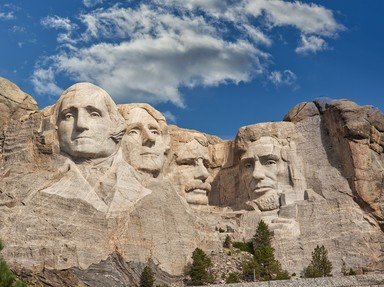Quiz Answer Key and Fun Facts
1. He was the first President of the United States from 1789 until 1797. How many of his own teeth did George Washington have left when he became President?
2. John Adams was the second President of the USA, from 1797 until 1801. He stayed at home, refusing to campaign for the Presidency because he felt that active campaigning for such a role was what?
3. One of the early Presidents of the USA and author of the Declaration of Independence disliked intellectual women immensely and felt the role of women was "to soothe and calm the minds of their husbands returning ruffled from political debate". He also stated that the notion of any woman being placed in any position of office was "an innovation for which the public is not prepared - and nor am I". Who was he?
4. Because his religious views were unknown to all but his very closest family, which President (totally unrelated to Marilyn) was criticised by the Presbyterian church in Albany, New York, as having "lived and died like a second-rate Athenian philosopher"?
5. John Quincy Adams, sixth President of the United States from 1825 to 1829, took his oath of office on a book of law instead of the Bible which is traditionally the case. Why did he do this?
6. Once, while absorbed in his reading at home, and with the fire growing low, Lincoln only vaguely registered that his wife had asked him four times to put more firewood on the flames. What happened next?
7. Who, in 1829, became the first President to invite the public to attend his inauguration at the White House, an event which caused such a huge noisy boisterous crowd that, for some time after, he was referred to in the press as "King Mob"?
8. On the death of John Tyler Jr, his was the only President's passing not to be officially mourned in Washington. Why was this so?
9. Who was the first President to be not of British descent, but Dutch instead - and also the first President to be actually born an American citizen?
10. Because this Vice-President took over as President of the United States following the death of sitting President Harrison from pneumonia, this tenth President of the country was given the name of "His Accidency" by his detractors and even quite a few of his own party. Who was he?
Source: Author
Creedy
This quiz was reviewed by FunTrivia editor
stedman before going online.
Any errors found in FunTrivia content are routinely corrected through our feedback system.


